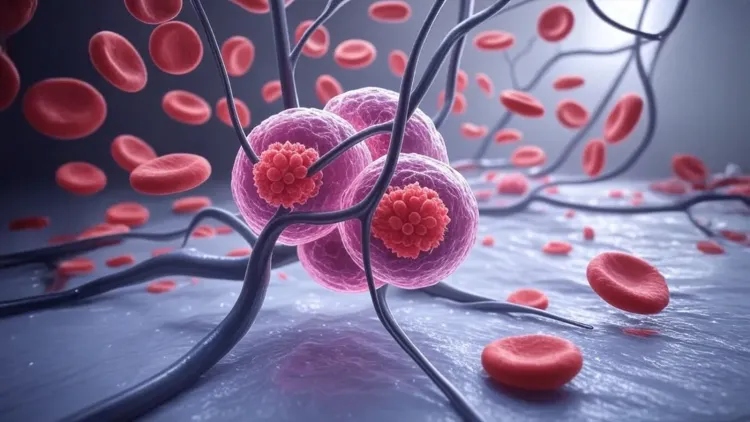Can a New AI Tool Transform Cancer Monitoring?

Synopsis
Key Takeaways
- Fragle is an innovative AI tool for cancer tracking.
- It analyzes DNA fragment sizes in blood samples.
- Requires only a small blood sample.
- Offers faster and more affordable monitoring solutions.
- Compatible with existing DNA profiling techniques.
New Delhi, June 14 (NationPress) A group of researchers in Singapore has introduced an innovative artificial intelligence (AI)-driven approach that simplifies and accelerates cancer tracking through blood tests.
The technique, known as "Fragle", was created by specialists at the A*STAR Genome Institute of Singapore (A*STAR GIS). It requires only a minimal blood sample and evaluates the size of DNA fragments present in the blood, uncovering unique patterns that distinguish cancer DNA from healthy DNA. This advancement can significantly aid healthcare professionals in monitoring treatment responses more accurately and frequently.
Lead author Dr. Anders Skanderup, Senior Principal Scientist at the A*STAR GIS Laboratory of Computational Cancer Genomics, stated, "Similar to how scientists tracked Covid-19 outbreaks through viral particles in wastewater, Fragle analyzes DNA fragments in blood to assess treatment responses and detect relapses early."
Current methodologies for detecting cancer DNA in blood, referred to as circulating tumor DNA (ctDNA), typically involve complex and costly DNA sequencing to identify common cancer mutations. Due to the variability of cancer mutations among patients, results can be inconsistent, complicating the monitoring of treatment responses using blood tests.
In contrast, Fragle employs AI to assess the size of DNA fragments in blood samples.
Cancer DNA often shows different size patterns compared to healthy DNA, and the Fragle AI model can effectively recognize these differences using only tiny amounts of DNA. Consequently, this method enables faster and more cost-effective cancer monitoring, as highlighted by the researchers in their publication in the journal Nature Biomedical Engineering.
Moreover, it has shown impressive reliability, providing accurate results from blood samples of hundreds of patients across various cancer types. Additionally, this approach is versatile and aligns with most DNA profiling techniques commonly utilized in hospitals and by commercial providers.
In an ongoing research project involving over 100 clinical trial patients, the GIS-NCCS team is leveraging Fragle to track ctDNA levels bi-monthly throughout treatment, aiming to catch relapse signs before they are evident in standard scans.
The team is also investigating whether early alterations in ctDNA can predict which patients are likely to respond well or poorly to therapies. The primary objective of this study is to evaluate the effectiveness of integrating ctDNA tests into routine cancer patient monitoring during treatment.









